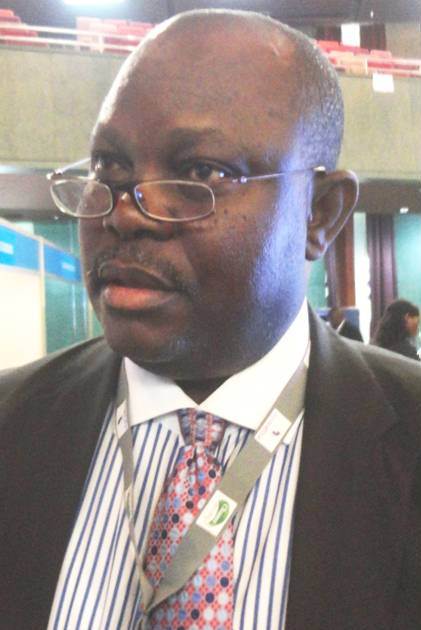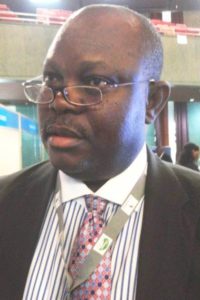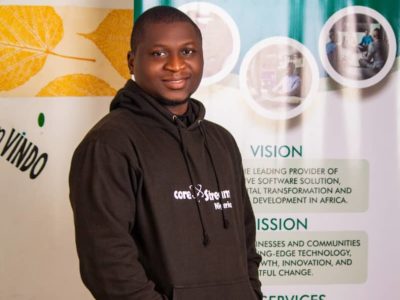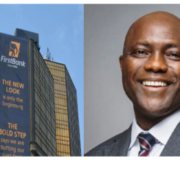Director General/CEO of the National Identity Management Commission (NIMC), Mr Chris Onyemenam in this interaction with IT Edge News, TONY NWOSU, spoke on the challenges of harvesting Nigeria’s citizens’ data and why it is imperative for all government agencies to harmonise data collations.
How are you facing challenges of poor infrastructures and insufficient budgetary allocations?
We are actually addressing the issue of infrastructure to achieve our set goals. It is a matter of time to meet the population of 160 million and it takes about 30 months and 14, 000 equipment and working 8 hours a day and we are rolling it out. Infrastructure isn’t a challenge. What we have is a budgetary constraint. That’s the challenge. Our job is to deploy the infrastructure for them to play a functional role. I think we have infrastructure issue. We are working with government agencies to ensure we capture the nation’s biometrics.
Lately, NIMC laid off some of the staff members for reasons that include falsification of certificates and they are in court, what is your position on this?
About 40 percent of Nigerian civil servants are using some other people certificates. In 2012, we had about 253 people dismissed. And as we speak over 400 people have gone to court to stop these dismissals. The issue of sacking of employees and use of falsified certificates are some things that we do not necessarily go public on except it becomes exigent as in this case. There are some things that you don’t need to make noise about or go public on. Sacking over 200 staff members due to falsification of results and going public on this isn’t quite good for an organisation that is in charge of the country’s citizen registration. That was why we didn’t go public. These are actions you take quietly.
Why would a national identity card management organisation in Nigeria choose MasterCard, a foreign firm to work with? Is this partnership not putting the country’s data sovereignty in Jeopardy?
I have an ATM and you don’t question MasterCard on your data privacy. We actually conducted a study in 2009 before we took this data policy. We discovered that people were apprehensive over their data being available to any government body. I think we have mental issues and we do not want to have it done the normal way. If there has been an ultimatum just like the way CBN did with the Bank Verification Numbering system for account holders in Nigerian banks, you will see people besieging our offices to get their national identity numbers but we have not taken this route and that is why it looked as if the sensitization is low. We have opened our enrolment centres since 2012 and people just trickle in. MasterCard partnership with National Identity management doesn’t interfere with Nigeria’s data sovereignty but it enhances data privacy and also this is in compliance with EMV certification.
In areas like Lagos, there are claims that staff members of your organisation collect money from unsuspecting public in order to register them?
National Identity doesn’t have office under the umbrella outside, anybody that said he/she is a staff member there at the NIMC; Lagos must have a staff ID card. I think the person you saw is certainly not a member of NIMC and anywhere you see a place where we do not have fingerprint and data capture machines then know that person isn’t from NIMC. We do not charge people for ID card registration for the first time and the second time when an individual comes for card replacement we charge a token. Any enrolment unit that is not complete with machines for finger print, head shot and signature is not an enrolment centre of NIMC.
The issue of duplicity is another case for your commission. How are you working with other agencies like Nigeria Population Commission?
Yes that is an issue and we are resolving it. There is no need to duplicate agency. There should be an automated way in collating that data in Nigeria and this should be centralized then the NIMC will get it. We key into this central pool instead of having different organisations doing one form of citizen registration or another. We have started working with many organisations and as we talk we are in discussion with other organisations that is into one form of registration or another. The National Health Insurance Scheme (NHIS) and the Nigerian Population Commission (NPC), we have started working with them. We are having these collaborations with other organisations that are registering people. This is the only way we can get huge data. As I made you understand that people find it difficult to come and register so we have taken it upon ourselves to look at ways that we can work with other bodies so as to get people registered either physically or by proxy and I think this method is working. NIMC has set up fibre connections to 14 agencies this is to show how desirous we are in working with many government agencies. Some of the crucial agencies that we have harmonisations are Federal Internal Revenue Service, Nigerian Police, Galaxy Backbone, Land and Registries, National Population Commission, banks, Federal Road Safety Commission and others. Harmonization of agencies with NIN provides holistic insight for government planning and service offerings. Services aided by identity linked data sets include: social welfare planning, taxation, and most importantly security. Beyond providing big data, the NIMC also assures of protecting citizens’ private data using a mix of technologies including the NIMC Public Key Infrastructure (PKI).
What is the level of certification of your data centres and how up-to-date are they?
The data centres we have march any data centre in the world and we have the certification: be it Tier II or Tier III data centre. We had our first certification on 2014 April and we were recertified this year. We have a backup centre also. Nigerians should continue to expect that if they work into any NIMC office or their collaborative partner such as Nigerian Immigration Prison Services, etc they will be received and their data will be captured. When the data is captured, a registration number will be sent to the individual via SMS. This SMS is done within few hours we have about six million data in Nigeria. When the card is printed and ready the individual will get an SMS. We want to let people know that there is a shift in paradigm. The card is not the identity but what is important is the number and once the individual gets the number it then means he/she must have enrolled.
“If there has been an ultimatum just like the way CBN did with the Bank Verification Numbering system for bank account holders in Nigerian bank you will see people besieging our offices to get their national identity numbers, but we have not taken this route and that is why it looked as if the sensitization is low.”
“There is a shift in paradigm. The card is not the identity but what is important is the number and once the individual gets the number it then means he/she must have enrolled.”
“Sacking over 200 staff members due to falsification of results and going public on this isn’t quite good for an organisation that is in charge of the country’s citizen registration. That was why we didn’t go public. These are actions you take quietly.”


































